To Be a Force Turning Japan toward Growth
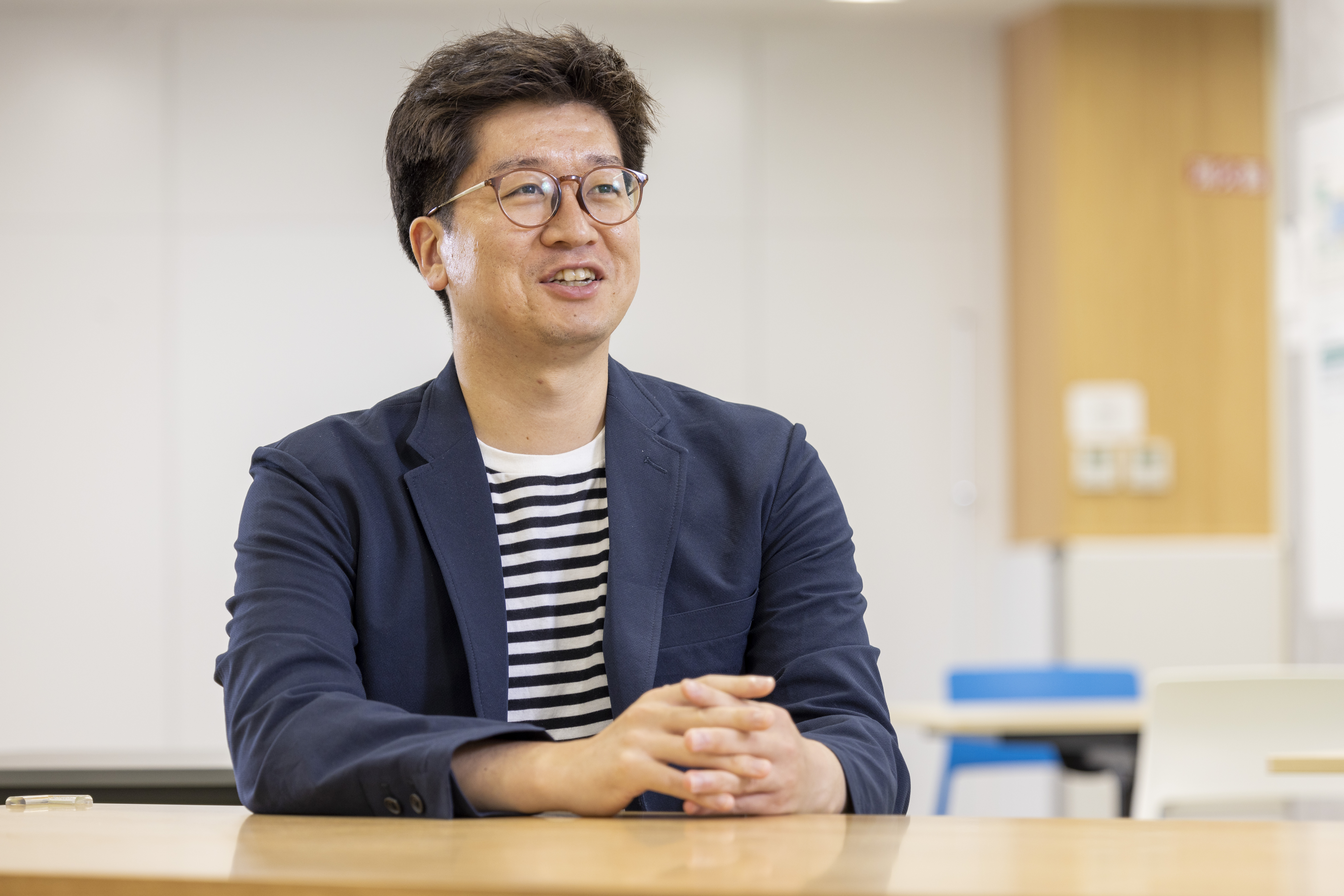
Profile
Koyo Moriya R&D Division, Research/Technological Development Division, ICT (Software/Cloud) Joined in 2017 as a new graduate
Panasonic Automotive Systems has a variety of personnel systems and training programs in place to support the growth and autonomous career development of each employee. Each division also provides unique career support related to the business or expertise for which they are responsible.
As part of the R&D Division’s ABD Supporting the Will initiative, we interviewed Mr. Koyo Moriya, who is currently studying at the renowned Harvard Business School (hereafter HBS), about how he came to study abroad and what he is doing now. * ABD: A Better Dialogue. A system that encourages personal growth and taking on challenges by building mutual understanding and trust between individuals and their supervisor through dialogue.
Expectations for Acquisition of Skills Required of Leaders
ABD Supporting the Will is an initiative of the R&D Division in which each employee and their supervisor work 1-on-1 to determine the best way to align will/can/must to collaborate on formulating a career plan.
It was January 2021 when Mr. Moriya submitted his request to the R&D Division to study at HBS. After discussing his future career with his supervisor, his plan was approved six months later in September, and after studying for exams while working, he received the go-ahead to study abroad in March 2022.
Mr. Moriya is currently attending the school for two years starting in August 2022, and is pursuing an MBA. The reason he decided to pursue an MBA was because someone recommended HBS to him, saying, “If you want to take a leadership role in a large company, HBS is a good choice.”
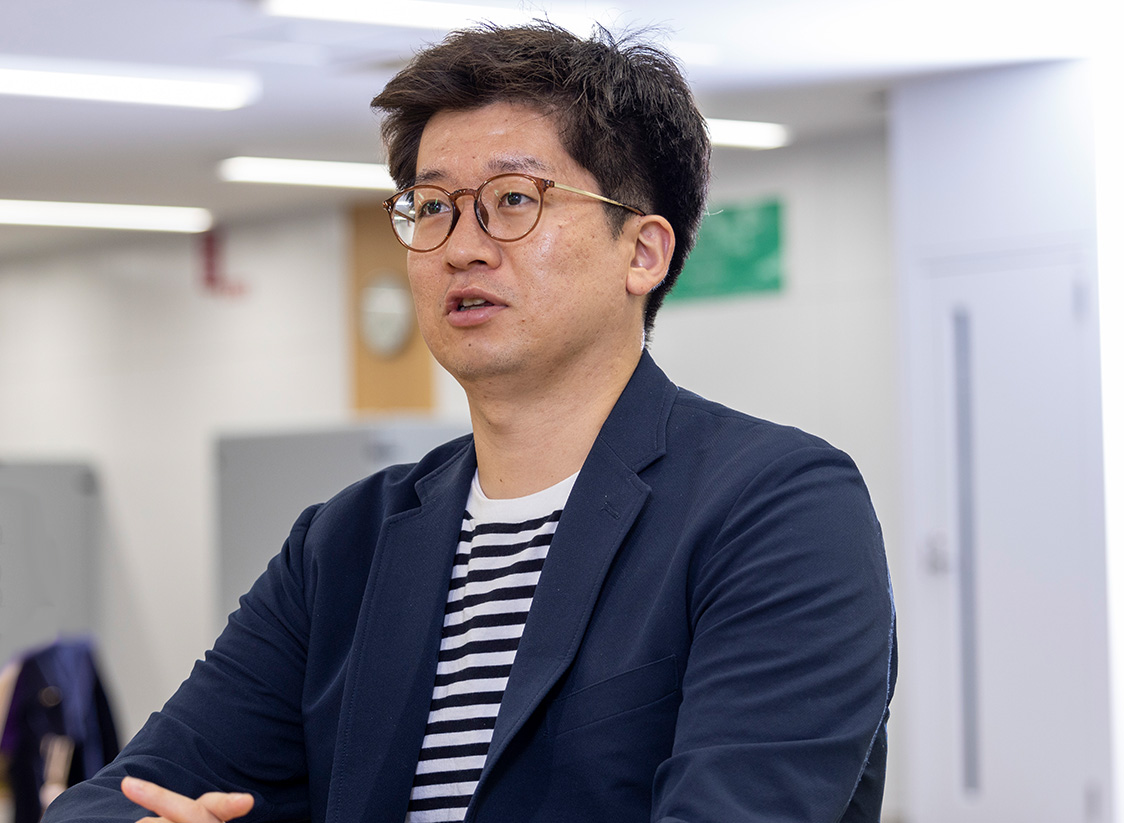
Workplace Fully Supports the Challenge of Studying Overseas
When he decided to enroll in HBS, his boss and colleagues at work gave him their heartfelt congratulations. The entire Panasonic Group, including the R&D Division to which Mr. Moriya belongs, related business divisions, and other business companies, is encouraging MBAs, so Mr. Moriya’s choice to take on this challenge was widely supported. It is the Group’s belief that this type of initiative is necessary for Japanese companies to survive in the world, and so he is receiving full support and assistance, including during the period of studying for the exam.
“I was very honored to hear some of my colleagues say that they were inspired by my efforts to study for the exam while working. Soon after, my immediate supervisor was also promoted to the Silicon Valley office. It was an interesting coincidence,” says Mr. Moriya.
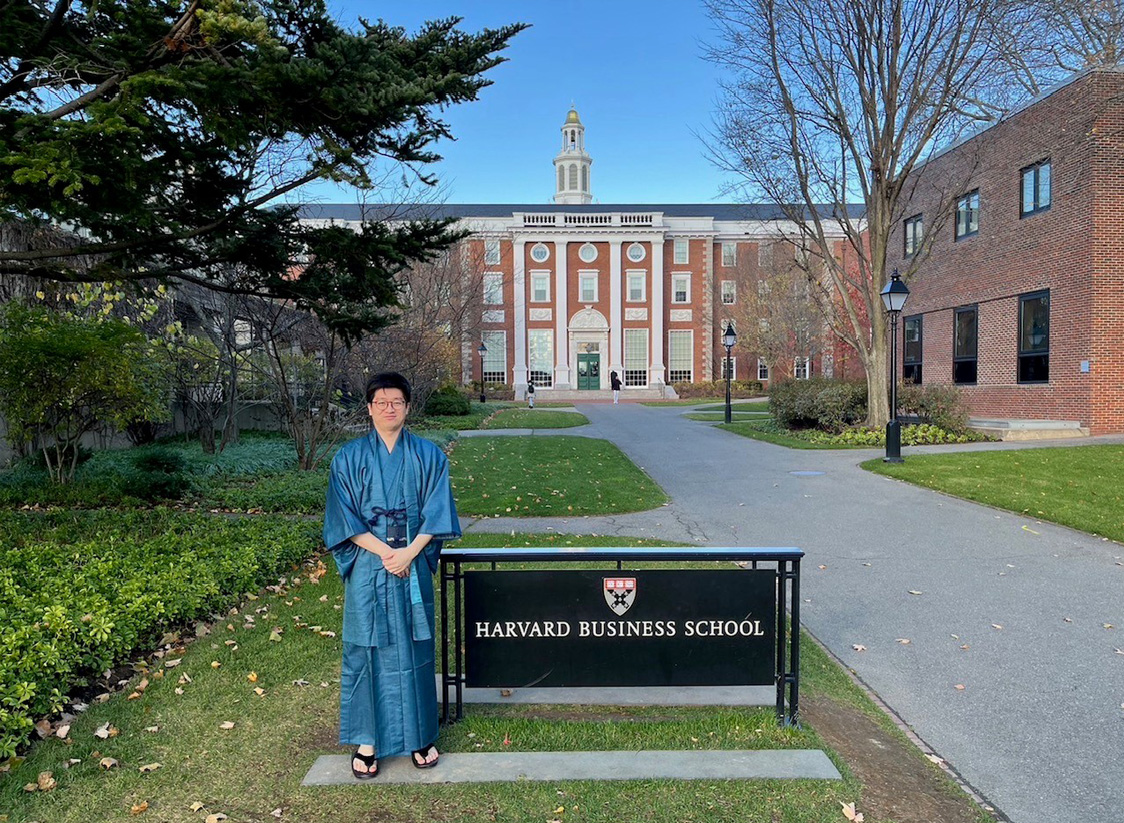
Simulated Experience of Global Business
Mr. Moriya, who is finding his study abroad experience very stimulating, views the school’s appeal in the following way.
“At HBS and other business schools, there are people that represent various nationalities, industries, and backgrounds. If I were to represent a company in the future and expand its business globally, it is inevitable that I would have discussions with such people. I enrolled in the business school because I thought that the most appealing thing about it was that I could have this simulated experience, and I still feel that this is the biggest advantage of the school now that I’m actually studying here.”
Mr. Moriya studies hard every day, cutting down on his sleeping hours to prepare for his studies. He reads dozens of pages of material for each class and organizes their opinions and ideas in advance before participating in discussions. Through these classes, engaging in discussions with other students and professors, he has become aware of and come to understand new perspectives and ways of thinking, and his prepared opinions sometimes change. Every day he keenly feels how important it is to engage in this stimulating environment.
Some of the professors are also practitioners who are setting global trends, and it is valuable to discuss and build relationships with them beyond the framework of the class. In addition, in the course Leadership and Corporate Accountability, which teaches leadership in the context of relationships with investors, employees, society, etc., covers the management philosophy of Konosuke Matsushita, the founder of Panasonic Corporation. The course has also provided Mr. Moriya with an opportunity to reaffirm his company’s position in the world.
As for his English skills, he only used it to write papers at graduate school. Although he needs to be reasonably prepared for discussions with other students on an equal footing since he is not a returnee, he will not have much difficulty. Mr. Moriya explains the reason for this. “Many of them have exceptional ability to perceive other people’s feelings, so it is possible to have discussions in a state of psychological safety. There is a cooperative atmosphere with my classmates, which creates an environment in which we can comfortably express our opinions, and I am finding it easier to participate than I expected. I like that we can hold deep discussions based on the premise that we come from different backgrounds.”
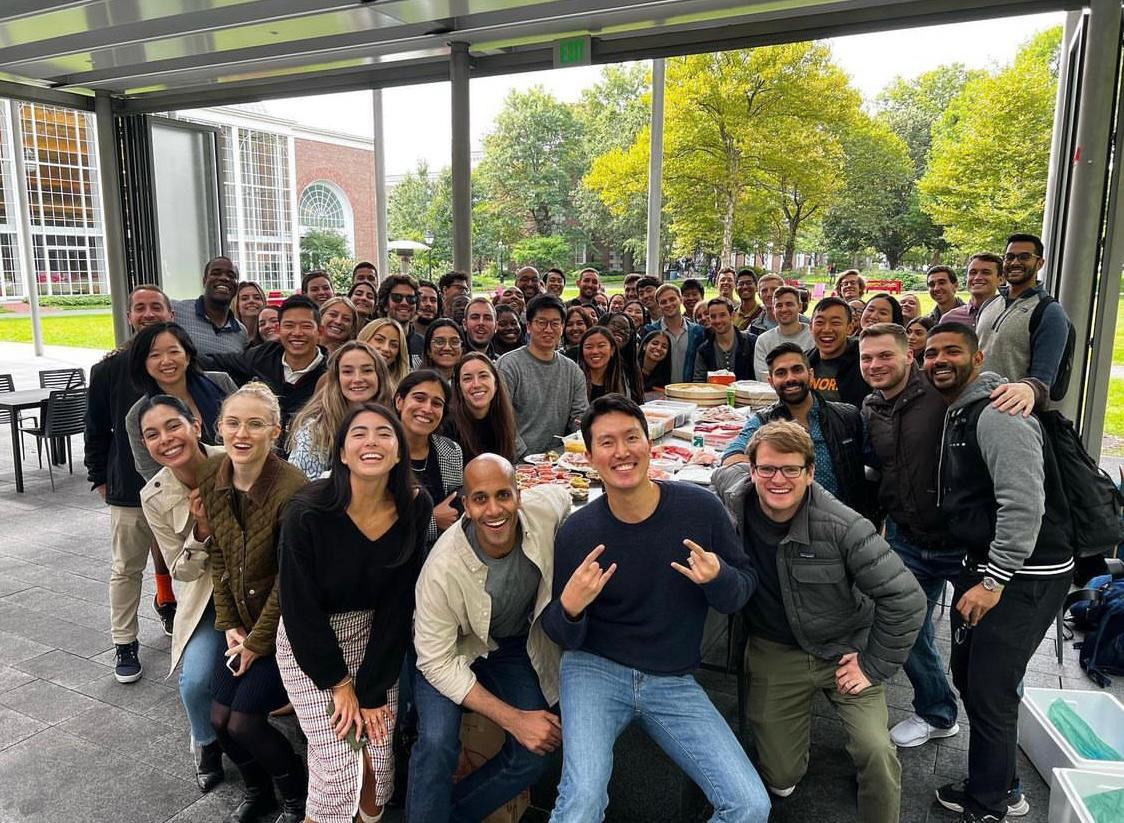
The Importance of Empathy Born from Sincere Dialogue
On his days off, Mr. Moriya spends time eating with classmates and going on trips, but “I basically study on Sundays,” he said, indicating that his study-abroad life is centered on his studies.
When asked about his most memorable experience during his study abroad, he mentioned the Japan Trek, which took place at the end of his first year. Japan Trek is a training program that allows HBS students to experience Japanese politics, economy, culture, etc. over a period of about a week. In this program, Mr. Moriya moderated a panel discussion with guest speakers who were leaders in the Japanese political and economic world. He was also in charge of an ikebana session where participants were introduced to Japanese culture.
Mr. Moriya says he has actually been doing ikebana for five years. Before the event, he was worried about how to explain ideas such as the spirit of ‘maximizing the beauty of flowers as they are’ and ‘ikebana emphasizes dialogue with flowers, whereas floral arrangement is more of a form of self-expression,’ and whether people would really understand it. However, in the end many of the participants were pleased, saying “This was the best experience of Japan Trek” and “We should definitely do this again in Boston!”
“The fact that the participants shared the same feelings about the two events gave me a great deal of confidence. It may be a bit far-fetched, but I felt that if sincere dialogue can generate a great deal of sympathy and move in the right direction, we may be able to end Japan’s ‘lost 30 years,’” Mr. Moriya said.
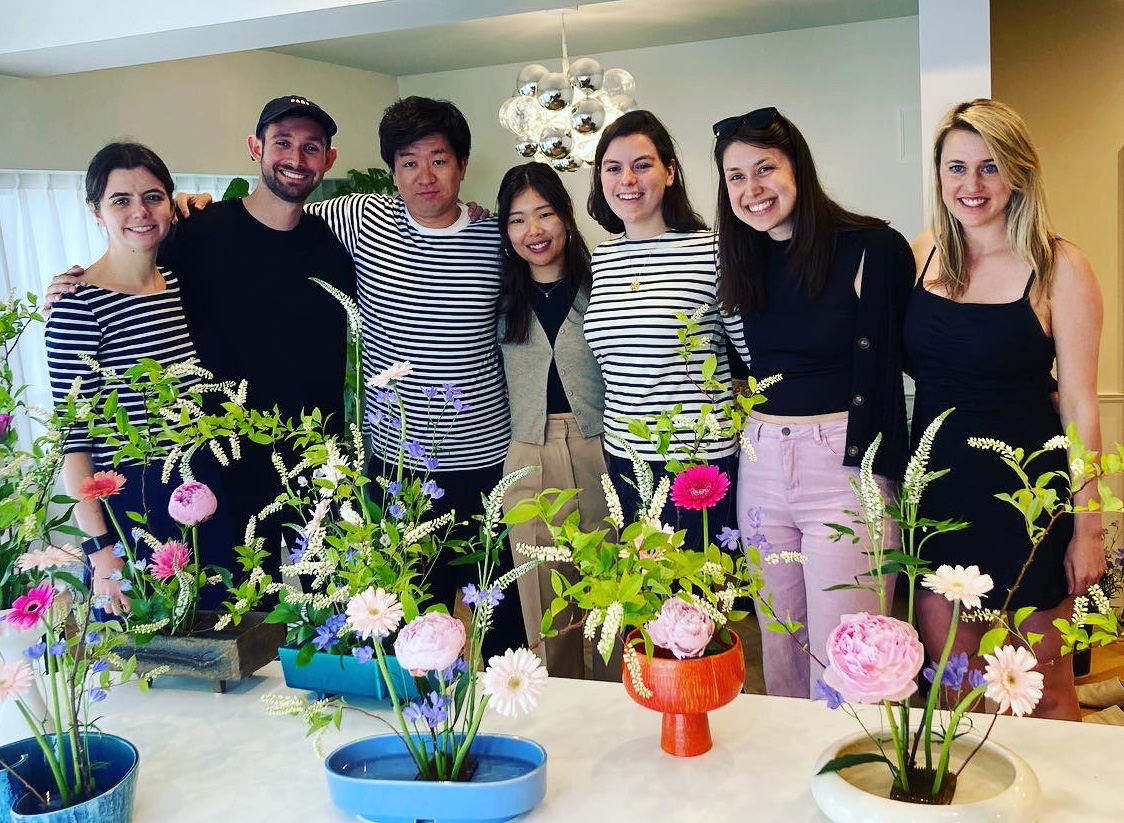
Leading to the growth of the Japanese economy
In closing, we asked Mr. Moriya how he would like to leverage what he learned here in the future.
“It has been a while since the ‘lost 30 years’ was mentioned as a need for structural and cultural reform of companies. I want to help Japan move in the right direction, from lagging behind of the rest of the world and missing opportunities for growth. For example, I would like to contribute to the further growth of Panasonic Automotive Systems, taking into account the current trend of various stakeholders becoming more critical of the company. I imagine this will ultimately lead to the revitalization of the Japanese economy.
I believe that people are happier when they feel the momentum of growth. This applies to the organizations to which people belong, as well as to Japan more generally. I would like to increase the number of people who can feel the momentum of growth.”
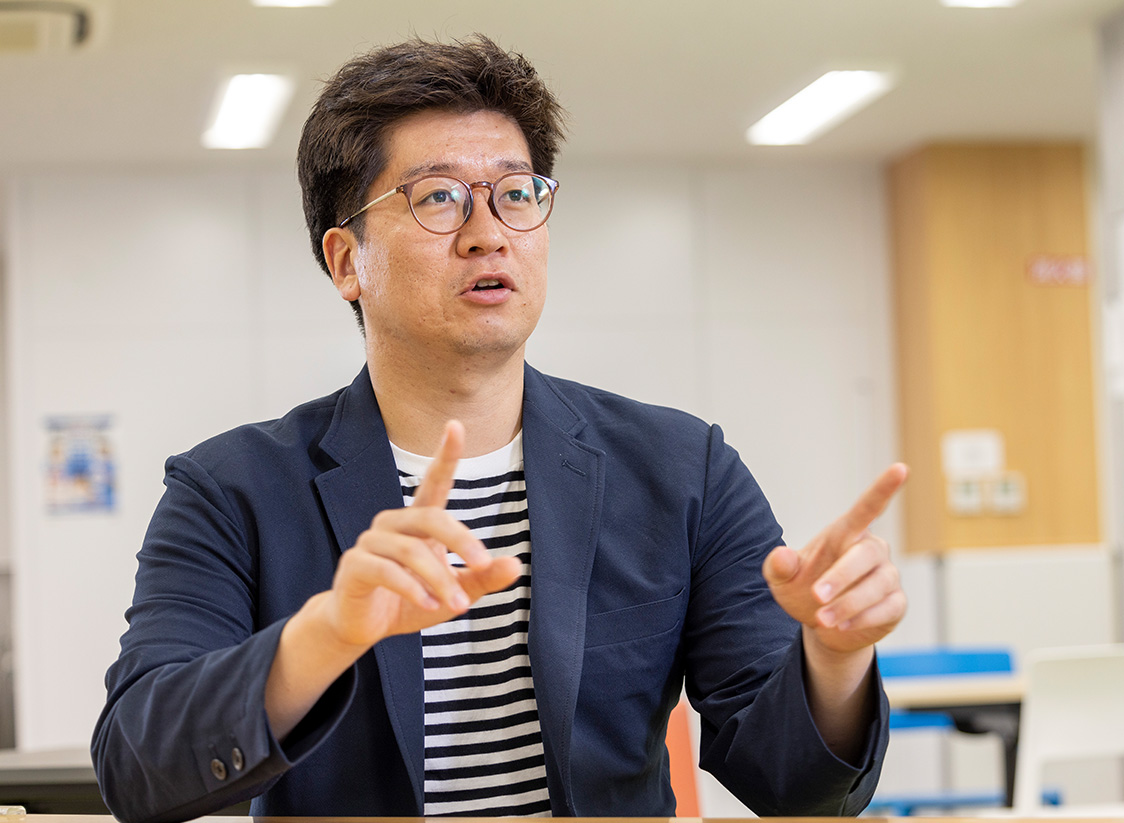
Support Programs Key to Career Development
Panasonic Automotive Systems’ career development support takes a variety of forms. There are training programs where HR prepares the curriculum, online training where individuals choose their own learning themes, support for acquisition of certifications, communication programs such as 1-on-1 meetings with supervisors and a mentoring system, and leaps in other fields such as an internal open recruitment system (e-Challenge), internal side jobs, and external side jobs.
ABD Supporting the Will is an initiative of the R&D Division in which each employee and their supervisor work 1-on-1 to determine the best way to align will/can/must to collaborate on formulating a career plan. We will also support career development away from work, such as studying domestically or abroad and obtaining doctoral degrees.
Click here for Panasonic Automotive Systems’ career support system (Japanese ony)